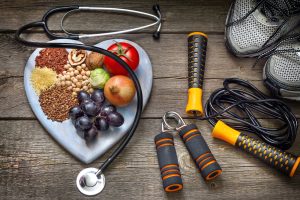
Eating is a vital necessity for everyone. However, for people who practice physical activity with some regularity, eating well is of paramount importance. Indeed, good nutrition is very important to prevent muscle injuries. It goes without saying that even excellent nutrition is not enough to prevent muscle injuries. However, it can help reduce the risk of injury. So here are three tips on how to stay in peak condition through proper nutrition.
Provide your Muscles with all the necessary Nutrients
Everyday meals or foods contain varying amounts of all kinds of nutrients. For an athlete in particular, the food intake should be particularly rich in vitamins and minerals, carbohydrates and proteins.
Vitamins and minerals
Vitamins D and C are still the most prominent in bone formation or protection. A low vitamin D status leads to a decrease in muscle strength, even if you are not yet in a deficiency stage. A sufficient intake of vitamin D is therefore important to strengthen muscles and thus prevent injuries. These two vitamins (C and D) also play an important role in the immune system. In addition, certain B vitamins (A, E, B6, B9 and B12) play an important role in the transformation of energy from food. It is therefore advisable to include fruit and vegetables such as oranges and bananas in your diet. Otherwise, the ingestion of multivitamin tablets or capsules can achieve equivalent results.
Minerals are also essential in preventing muscular accidents. For example, magnesium helps to prevent cramps through its stabilising effect on the membrane. Calcium is also useful for the formation and strengthening of bones. It is also a regulator of muscle contraction.
Carbohydrates
These are the categories of nutrients that provide the body with the energy it needs. During exercise, the body requires more energy. However, it is not possible to store too much glucose. It is therefore important to optimise carbohydrate consumption to improve performance and avoid muscle injuries; the aim being to have the energy you need when you need it. For example, the food supplements offered on the amoseeds.com website are excellent for supporting athletes on a daily basis or during preparation for a competition.
Of course, to determine the appropriate ration for each person, it is necessary to take into account the level of intensity of the activity carried out, but also the individual characteristics (weight, age, sex…). However, the most important aspect is the speed of absorption of the substance. In this respect, there are two categories of sugars: slow sugars and fast sugars. Slow sugars are most often used by footballers. They allow the body to store carbohydrate reserves that can be quickly metabolised by the body. These products (bread, potatoes, rice, etc.) should therefore be eaten about 2 or 3 hours before exercise. Fast sugars should be consumed during exercise. They serve to revitalise the body when you start to feel weak.
Protein
To recover well after physical effort, it is also important to provide your body with sufficient protein. These substances play an essential role not only in building up muscle mass, but also in supplying it. For this purpose, animal proteins are more recommendable than vegetable proteins for many reasons. Firstly, they are more easily absorbed by the body. In addition, they have a higher concentration of whey proteins, BCAAs and especially leucine. Leucine is the most important amino acid in muscle building.
Here too, the determination of the ideal protein content depends on several factors. For a long time it was thought that the maximum amount of protein to be consumed during a recovery phase was 25g. However, the results of a study carried out in 2016 show that this proportion can rise to 40g during acute recovery phases. However, to optimise sports performance, it is best to spread your protein intake over all meals of the day.
Get enough Water
Water is often neglected, but it is the basis of all nutrition. The human body is largely made up of water and it would be dangerous to lose more than 2% of water. It is therefore essential to drink enough water before, during and after physical exercise. Good hydration speeds up the muscle repair process, especially between two consecutive sessions.
To analyse the needs of an athlete in this respect, all the subjective criteria mentioned above should be taken into account. Other factors such as the immediate environment, the intensity and duration of the activity performed should also be taken into account. If it is not clear how much water is needed, then the recommended minimum of two litres of water per day can be used. In addition to natural water, this also includes all food consumed during the day (broths, coffee, milk, etc.). In addition to water, oral rehydration drinks (ORS) can also be used.
Eat good Fats
These are essentially omega 3 fats, which are essential food substances for human health, especially for that of a sportsman. Their ingestion contributes mainly to reducing the risks of inflammation and therefore of muscular injuries.
Among the foods concerned are
- Fish ;
- Nuts ;
- Eggs;
- avocado
- Chia seeds;
- etc.
Consumption of these foods also helps to improve energy metabolism through better transport of carbohydrates into the muscle fibres.